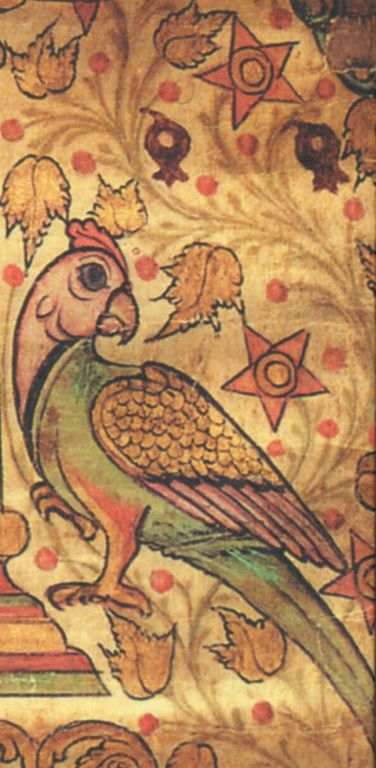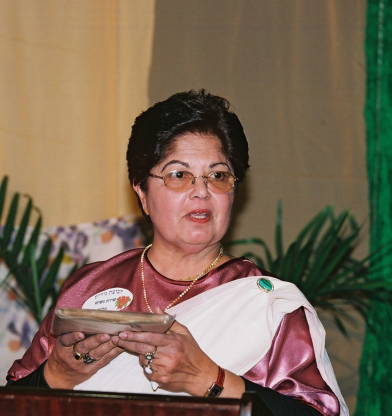1981
37. Gorgeous Black-Haired Woman
37a. Hannah (Dolly) Japheth. Recorded by Barbara Johnson, Neot Mordekhai, March 10, 1981; II-28.
37b. Rahel Kala and Venus Lane. Tiberias, 2006.
Ěnna manasākkiya kāṟkuḻali nī—tāmasiyěḍi (x2)
Innu rātṟi nī pāṟkkěḍi pulaṟccavarě nī—pāṟkkěḍi (x2)
1. O thou gorgeous black-haired woman, entering my heart,
Stay here with me. (x2)
All through the night till break of day,
Stay here with me. (x2)2. My strong man, with you I’ll stay. O my man of power,
With you I'll stay (x2)
Until the time you send to me my King Mashiya;
Till then I'll stay. (x2)3. I’m rushing to you suddenly, to you, O my love;
Now be at peace. (x2)
Feed me your appam bread and make me drink your wine.
Make me drink wine. (x2)4. How long will you test me, love? I am asking you.
I am asking you. (x2)
If ever I forget you, I’ll forget my right hand,
Forget my right hand. (x2)
5. Without any flaw, you know I will restore you,
O lovely one. (x2)
Clean your teeth, my beauty, until they are white,
As white as snow. (x2)
This Malayalam translation of the Hebrew piyyut “Yefefiyah” (“Most Beautiful Woman”) was the source of Zacharia’s and Gamliel’s Malayalam title for their 2005 book, Kārkuḻali.” Zacharia was entranced that the poet chose this common poetic Malayalam epithet for an exceptionally beautiful woman—literally “black-haired woman”—to translate the Hebrew word. He praised the composer of the song for “translating culturally” by “maintain[ing] Malayalam-ness to the extreme while remaining true to the Hebrew… and skillfully retaining the use of poetic alliteration.” The gendered Malayalam pronoun usage and verb endings denote an intimacy that is not conveyed in the Hebrew grammar of the original version (Zacharia, personal communication, 2002). There is a similar intimacy in the requested feeding of appam—a most common form of bread in Kerala, made of ground rice flour.
The piyyut is one of many Hebrew songs designated to be sung for processions with the Torah scrolls on Simḥat Torah (’Areshet 1980, 387). According to Ruby Daniel (personal communication, 1999), it has been interpreted as an allegory of the love between God and Jerusalem—an interpretation strengthened by the reference in stanza 4 to Psalm 137:5—“If I forget you, O Jerusalem, let my right hand lose her cunning.” But not surprisingly, it is also enjoyed as a love song in its Malayalam translation, performed during wedding parties with amusement at the romantic innuendos.
This song was sung vigorously in 1981 by Ruby Daniel’s aunt, Dolly Japheth. It is found in women’s notebooks from Parur, Ernakulam, and Kochi (Kadavumbhagam and Paradesi).






